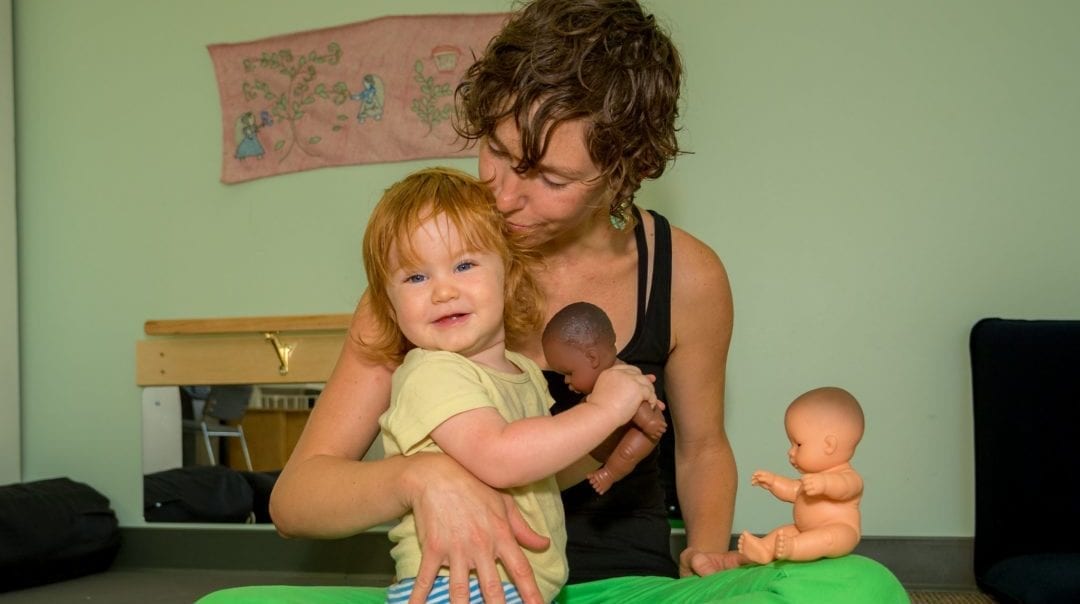
12 – 24 Months
With baby’s first birthday, many parents and caregivers feel a sense of accomplishment, relief, and joy after their first year together as a family. Baby may have spoken a first word or taken a first step. By this time, patterns have emerged so that feeding, diapering, sleeping and playing times are somewhat predictable. Daily routines have often been established. Family life has settled into a rhythm.
During the second year, however, the profound growth in the baby and young toddler often means adjusting to a bolder, busier rhythm, especially as children learn to move – crawling, standing, and walking! Sleep patterns can change as the child’s whole being practices these new movements. Sometimes in their second year, babies give up their morning nap and spend longer periods of time playing and moving.
With this ability to move independently comes a sense of autonomy. The baby and young toddler becomes curious about “all by myself.” The baby-in-arms becomes a baby-in-the-world! Social exploration with other babies and young toddlers may involve grabbing, holding on tight, or saying, “No!” with words or body language. These are ways for young children to assert their space and place in the world. Grownups can stay close by, ready to support the tears, tantrum, biting, or hitting that may accompany these big feelings. Adults can say, “I see your tears and you look frustrated.” Hugs and comfort are much needed even though baby is moving more independently.
No matter how confident – even bold! – your toddler seems, he or she is almost certain to be anxious or afraid sometimes. Toddlers need to balance their growing need for exploration with their need to be safe. Toddlers may want a longer snuggle or gather more comfort objects before bedtime. Toddlers may depend on rituals such as the same book or the same song at bedtime. These are ways for toddlers to have control in a world that is much bigger than they are.
As they develop more and more physical mastery, babies and young toddlers test limits of their behavior. Testing limits of what is okay and not okay is one way that babies learn to feel safe with their grownups. Adults are called upon to be very patient, clear and consistent. Power struggles may develop around diapering, feeding, sleep, and transition times. Allow plenty of time for transitions. Sometimes a simple choice is helpful, such as “Would you like to fasten your diaper or would you like me to do it?”
The second year is a remarkable time for language development. Babies often use between 50 to 150 words by eighteen months and may speak in sentences such as, “I thirsty.” Although they understand and speak more and more, babies and young toddlers only grasp what’s now and next. Clear communication about now and next helps settle daily life and support language development. Very young toddlers often speak about what is right in front of them. Adults can put words to experience by saying things like, “You’re rolling the ball” and “Now we are putting toys away, and then it’s naptime.”
Play is a child’s work. You may see children this age pour, dump, squish, scoop, squeeze, stack and knock down. It may seem that baby is doing the same thing over and over again. Parents sometimes wonder whether this is normal or how they can encourage their child’s learning at this age. The most basic ingredient for baby’s healthy learning is a warm, reliable, protective relationship with his or her grownups. Babies learn best when they are calm, relaxed, safe, and loved. The most important things adults can do to support baby’s learning are to talk, read, sing, go for walks, and simply enjoy one another.



